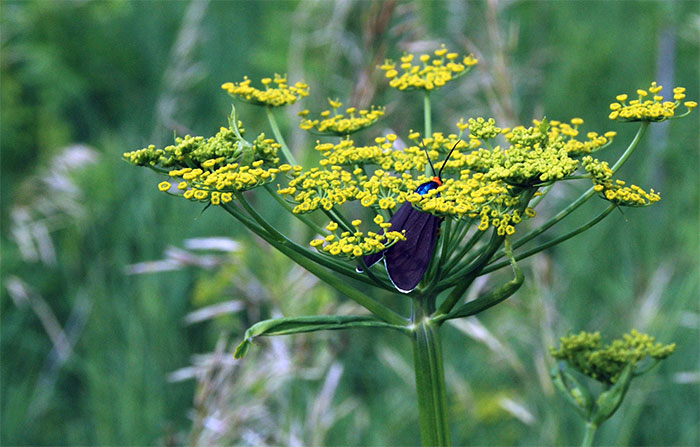Lanark County and Friends of Lanark County — Partners in Environmental Sustainability?
By Theresa Peluso
Three years ago, when Lanark County first considered spraying their roadsides with pesticides as the solution to control wild parsnip, many citizens objected, and with good reason.

Dozens of well-qualified, experienced experts in botany, environmental sciences, biology, chemistry, medicine, and agricultural science, as well as hundreds of concerned citizens, responded with quite a different opinion. They wrote to councillors and to newspapers, and organized interviews and workshops on the dangers and questionable effectiveness of using pesticides to control wild parsnip. Hundreds of local people signed a petition requesting that Lanark County desist from roadside spraying, and they asked for no-spray signs. And when this request was denied at the County level, protest signs advocating education over pesticides dotted the countryside.
In 2017 Lanark County offered exemptions in the form of legal contracts for residents who did not want their roadsides sprayed. Friends of Lanark County printed notices of these exemptions and delivered them by hand – at very short notice – and advertised this option on their website. In this way, hundreds of residents who were unaware of this option, were notified and were thus able to apply.
An impressive commitment was shown by several groups of citizens who stepped up to adopt roadsides and manage the wild parsnip on their own — despite all the onerous conditions that needed to be met before a road could be adopted. This resulted in over 60 lane-kilometres of roadside being managed in an environmentally sustainable way. The Adopt-A-Road experience reinforced the appreciation that wild parsnip is only a plant, and not to be feared.
It has required persistent, sustained involvement, but the efforts of so many concerned citizens have shown positive results. Signage was erected, following pesticide application. The municipalities of Tay Valley, Mississippi Mills and Beckwith did not spray their municipal roads this year. Neither did the township of Rideau Lakes. And the Council of Tay Valley (which, of all the Lanark County municipalities, has the most county roads passing through it) sent a unanimously-approved motion to Lanark County to halt spraying on county roads within their jurisdiction. To their great consternation, Lanark County Council denied this request.
Despite these events, there have been some positive changes at the County level. Several councillors and staff are reframing how they look at the issue of roadside spraying, and are more aware of the need to protect our sensitive water systems and the plants that our pollinators depend on. A positive step this year was that several county roads were spot-sprayed instead of boom-sprayed, and so did not kill all flowering plants on the roadsides. As of last fall, Lanark County now has a Vegetative Management Plan which gives them tools to use other than toxic pesticides.
From my understanding, the two-year spray program is now over, and people have learned a great deal. The focus now needs to be on educating people about wild parsnip, and on restoring and replanting damaged areas.
So, here’s looking at you, Lanark County, and hoping that this is the beginning of a constructive partnership. Let’s build together on the positive steps made. For this to happen, concerned citizens need to stay engaged, and advocate for true respect and collaboration from Lanark County Council. After all, we are ALL environmental stewards, and accountable for the world we leave to future generations.

